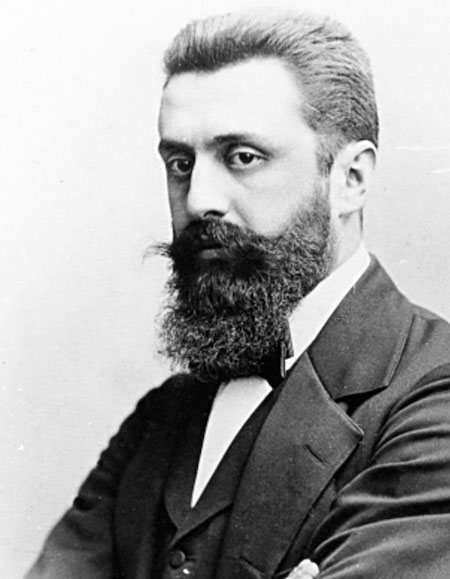 “Zionism demands a publicly recognized and legally secured homeland in Palestine for the Jewish people. This platform is unchangeable.” — Theodor Herzl, father of modern Zionism
“Zionism demands a publicly recognized and legally secured homeland in Palestine for the Jewish people. This platform is unchangeable.” — Theodor Herzl, father of modern Zionism 1.
The math is simple. More than 120 thousand Jews voted for the World Zionist Congress. That’s more than double the number of the 2015 election to the same body.
These Jews were led to believe that their vote matters. That’s good, as long as they do not expect a sea change in Israel’s policies as a result.
The vote: 31,000 for the Reform Judaism list (up from 21,000). 21,000 for Orthodox Mizrachi (up from 10,000). 20,000 for ultra-Orthodox Eretz Hakodesh, a new list. 15,000 for Conservative Jews (up from 10,000). 10,000 for ZOA (up from 3000). 8,000 for the Russian oriented American Forum for Israel (up from 4000). Close to 8,000 for progressive Hatikva (up from 3000). And then there are some lists with 2,000 or so and less.
2.
What changed, except the overall numbers? Any serious examination of the results would lead to a simple yet clear conclusion: Orthodoxy changed. Haredi Jews decided to play the game of Jewish politics – not a small thing if we consider the Zionist title. Their decision provided them with something close to a win. A third place for the list Eretz Hakodesh, practically a tied with a second place list Orthodox Israel Coalition (Modern Orthodox). Combined, these two lists of Orthodox Jews have 40 thousand votes. About a third of all votes. 10 thousand more than the number one list – that of Reform Judaism.
3.
The list of Reform Judaism is, again, the one with most votes. It managed to increase its vote by 10 thousand compared to 2015. The movement should be recognized for an efficient effort. It shows that there is no substitute to organization, and that a movement is still a useful vehicle for Jews as they seek to have impact. And yet, the more votes that the movement recruited this time leave it in an inferior situation compared to 2015. Five years ago its share was close to forty percent. This time, it is about 25%. So Reform Jews had to run fast and still lag behind the newcomers.
4.
Why this happened? Ironically, it was the progressive side that began the process of making this race more competitive, by trying to convince the voters that the Congress can be a tool with which to alter Israel’s policies. For some reason, the Orthodox were convinced that the stakes are high. And since their crowd is easier to mobilize, their rise was swift, and their message resounding: If this is serious, we are going to show up and get our share of the cards.
5.
What’s their share of the cards? The outcome of the election suggests that for the Jews today – at least those of them who care – the stack of conservative and religious cards is thicker than the stack of progressive cards. Simply, they have more people who care enough to cast a vote. The much talked and written about list Hatikva – associated with the New Israel Fund, JStreet and the rest of the Peter Beinart crowd – doubled its number of votes in a round that has almost triple the vote. Hatikva might be good for the newspaper business. It draws celebrities and commentators that can get the attention of the media. As for real support of real Jews who really care – not so much. The ultra-progressive critics of Israel got around five percent of the vote. That’s about the same percent of Israel’s Jewish left. And as we all know, Israel’s Jewish left is hardly an influential political bloc.
6.
The outcome poses a challenge. The achievement of the Orthodox lists could make progressive Jews – a majority among Jewish Americans – less involved in organized Jewish life. It could alienate these groups from the Congress.























 More news and opinions than at a Shabbat dinner, right in your inbox.
More news and opinions than at a Shabbat dinner, right in your inbox.